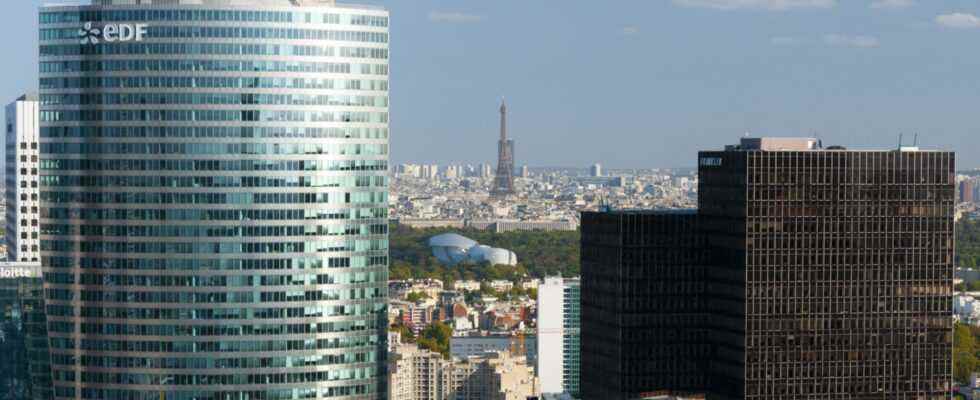The State, which already owns 84% of EDF, announced on Tuesday its intention to launch a public purchase offer (OPA) to renationalise it 100%, an operation at 9.7 billion euros intended to take out the group from its financial and industrial rut. The government has chosen the simplest way to proceed, instead of a nationalization law which would have been the first since 1981. The government plans to file the offer by the beginning of September with the Autorité des marchés financiers ( AMF), with the objective of completing the operation at the end of October, according to the Ministry of the Economy.
However, this will be subject to Parliament voting the necessary credits in the amending finance law for 2022. This text is currently being examined by the National Assembly. The takeover bid for the remaining 15.9% of the capital to be acquired will be based on an offer of 12 euros per share. This price represents a premium of 53% on the share price noted the day before the announcement of the intention to renationalise. It is also an increase of 34% compared to the average stock market price of the previous twelve months, underlines Bercy.
The State also plans to offer 15.64 euros per OCEANE (convertible bond). The quotation of EDF, suspended on July 13 while the government clarifies its intentions, resumed on Tuesday and the course quickly converged towards 12 euros. If the state buys out the group in its entirety, it will then be delisted, 17 years after it went public with much fanfare.
A step before the reorganization
This return of the State to 100% in EDF was announced on July 6 by the Prime Minister, Élisabeth Borne, in her general policy speech. “This operation gives EDF the means necessary to accelerate the implementation of the new nuclear program wanted by the President of the Republic, and the deployment of renewable energies in France,” declared Bruno Le Maire, the Minister of Economy, quoted in the press release from Bercy.
The heavily indebted group is faced with heavy financial burdens, present and future, and vast industrial projects. Emmanuel Macron announced the launch of a program of six new generation EPR nuclear reactors, or even fourteen, of which the only model currently under construction in France, in Flamanville (Manche), is more than ten years behind schedule. While more than half of its 56 reactors are now shut down for maintenance or corrosion problems that have recently appeared, EDF must also manage the upkeep of an aging fleet.
More than 60 billion in debt at the end of 2022?
Weighed down by a debt that could reach more than 60 billion euros at the end of 2022, EDF has seen its financial situation further deteriorated by the government’s decision to make it sell more cheap electricity to its competitors to protect household bills. . 100% nationalization should therefore only be the first step in a vast undertaking.
Its priority issues: what regulation for the sharing of current nuclear power, whose revenues largely go to EDF’s competitors via the sale of low-cost electricity, and how to finance new nuclear power. Everything will have to involve discussions with Brussels and possible reforms for the group.
“It allows the state to regain control of the most sovereign activities of our decarbonized production”, says Bercy of the renationalisation. “It allows us to open extremely long-term construction sites with more serenity”, adds the same source, who confirms: “This is not the end of the projects we have for EDF, both in terms of its production and of his organization, but it’s a very important step.”
